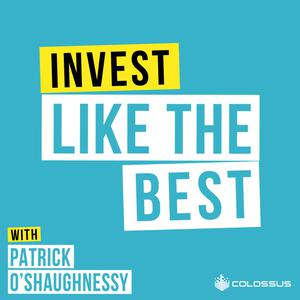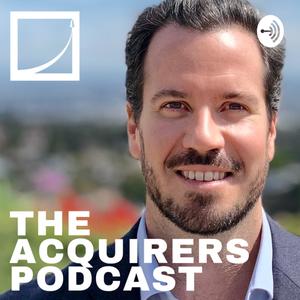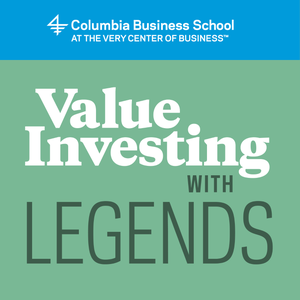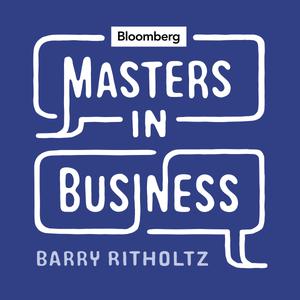
OutsideVoices with Mark Bidwell
Mark Bidwell
Unlocking the power of diverse perspectives to solve your biggest challenges
- 1 hour 3 minutesCharles Foster: One Man’s Search for Meaning: a Journey to the Origins of Consciousness
Charles Foster is an English writer, a traveler, a veterinarian, a taxidermist, a barrister, and a philosopher. Like my previous guest Steven Kotler, he believes in getting deep into subjects in a very immersive and experiential way. In his earlier book called Being a Beast, Charles shares his experiences of trying to live as an otter, a badger, a stagg, a fox and other animals and birds, all in order to better understand what being a wild animal is really like. His latest book is called Being a Human, where he and his 13-year-old son live in the wilderness as Paleolithic hunter gatherers to really understand what it means to be human. Charles rolls up his sleeves and puts himself into the shoes of our ancestors going back many thousands of years. And when asked why he bothers to drag himself and his children off into caves, he answers as follows: because I don't trust books, and you get a wholly different kind of knowledge by doing and feeling things. So this is a man trying to be a better human, a better father, a better son, a better husband, a man who dives deep into a subject in order to enhance his understanding of arguably the most important topic that faces us all. He's a traveler through time and space. Being a Human is a travel book, essentially, about traveling across generations, and Charles’s curiosity is infectious. What We Cover:
- 5:09 - How Charles landed on such a diverse range of professional activities
- 10:00 - Why writing Being a Human was much harder than writing Being a Beast
- 19:06 - What Charles learned by experiencing the hunter-gatherers’ way of life
- 25:00 - Desouling and the big changes humanity experienced in the Neolithic period
- 38:23 - Shamanism and why we lost the ability to perceive the world in a “mystical” way
- 45:13 - What it means to be a proper father and a proper son
Key Takeaways and Quotes:
- Trying to get into the heads of ancient humans is very difficult. Even ancient humans can lie to us, it’s part of their complexity. The cave paintings are not always telling a straightforward story.
- It’s a shame that an almost mystical way of looking at the world, given to us by physics, is not imported into the biological world which we inhabit.
- The desperate quest for a right story is behind all this political, economical, and ecological mess we live in today.
Resources and Links Mentioned:
- Being a Human: Adventures in Forty Thousand Years of Consciousness by Charles Foster
- Being a Beast: Adventures Across the Species Divide by Charles Foster
- Connect with Charles Foster
- The Snow Leopard by Peter Matthiessen
- The Mind in the Cave: Consciousness and the Origins of Art by David Lewis-Williams
Other Popular Interviews on OutsideVoices:
- Steven Kotler: Getting Younger with Age - Mindsets for Boosting Learning and Flow
- Kevin Kelly: Raising the Bar - Excellent Advice, AI’s for Better Living
- Wade Davis: Why Ancient Wisdom Matters in Today’s World
- Benedict Allen - Exploring Cultures
Connect with OutsideLens:
- Subscribe to our free newsletter
- Connect with Mark Bidwell on LinkedIn and Twitter
16 May 2023, 8:35 am - 49 minutes 26 secondsKevin Kelly: Raising the Bar - Excellent Advice, AI’s for Better Living
Kevin Kelly first appeared on this show back in 2016 to talk about his bestselling book, “The Inevitable”, which was a review of the key tech trends that were shaping our lives. Today, almost seven years later, I’ve been struck by how prescient a number of his predictions turned out to be back then, in particular around artificial intelligence, which we talk about in this episode.
Kevin’s latest book is called Excellent Advice for Living: Wisdom I Wish I'd Known Earlier. This is a curated selection of aphorisms, which guide how Kevin lives his life, and which he was encouraged by his family to put together several years ago. It's a mixture of very practical, as well as quite counterintuitive, but nevertheless fascinating advice for parents, for children, and for grandparents. There are echoes of Charlie Munger and Warren Buffett, in emphasizing the importance of thinking long term, of deferred gratification, or of compounding, but there are also different ways of looking at the world, drawing from the work from James P. Carse and his “Finite and Infinite Games,” that guide Kevin and how he approaches things.
Kevin has done a huge amount of travel and he shares with us how he thinks about traveling, and why he sees traveling as such an important activity for the youth to pursue. Towards the end, we talked about what his current projects and his future projects are, and he's embarking on a 100-year project, being enormously optimistic and positive about the future.
What We Cover:
- 08:26 - Three types of travel and Kevin’s approach to traveling
-
19:49 - The idea of finite and infinite games and the parts of our society and systems that can be perceived as infinite games
-
23:24 - The paradox of generosity and why it works even if it seems counterintuitive in today’s world
-
30:19 - The value of rites of passage for the youth and how to recreate them in the modern Western society
-
34:03 - Where we are going next with the advancement of artificial intelligence
-
45:43 - Kevin’s 100-year project and why he is optimistic about the future
Key Learnings and Takeaways:
- Travel is essential for growth - encountering the other and learning is one of the most powerful and transformative experiences for the youth that should be facilitated and subsidized on a national level
-
The foundational paradox of our human societal collective existence is that the more you give, the more you get, that you cannot deplete your generosity and kindness.
-
The thrilling adventure that the society is headed into right now is trying to elevate the AI's so that they're better than humans, even though we currently don't have a consensus on what ethics and morality mean that we could program into AI.
Links and Resources Mentioned in This Episode:
-
Excellent Advice for Living: Wisdom I Wish I’d Known Earlier by Kevin Kelly
-
The Inevitable and other books by Kevin Kelly https://kk.org/books
-
Connect with Kevin Kelly on social media @Kevin2Kelly
-
Finite and Infinite Games by James P. Carse
-
Kevin Kelly: The Formula for the Next 10,000 Startups, Failing Forward and Becoming a Teaching Organization on OutsideVoices
Other Popular Interviews on OutsideVoices:
- Mohnish Pabrai: Cloning, Learning from Charlie Munger, 100 Baggers
- Steven Kotler: Getting Younger with Age - Mindsets for Boosting Learning and Flow
- Robert Cialdini: Pre-Suasion - How to Influence with Integrity
Connect with OutsideLens:
2 May 2023, 7:36 am - 14 minutes 8 secondsKevin Kelly on AI
In this short episode, I’m sharing an excerpt from my recent interview with Kevin Kelly. He's got a new book coming out in May 2023, called Excellent Advice for Living: Wisdom I Wish I'd Known Earlier. We’re going to release the full interview when the book is out, but in the meantime, it’s worth sharing with you some of Kevin’s insights into the topic of AI, which is one of the areas in which he is genuinely a world leader. Unless you've been living in a cave or under a rock, you're likely very interested in how AI technology is going to shape out - whether it is just one more iteration of the Silicon Valley hype machine, or whether this is something far more fundamental, something that threatens a number of our global institutions relating to democracy, to the economy, and to what it means to be human. Be sure to also check out my previous interview with Kevin Kelly, linked below in the show notes, as well as my recommendations of two other shows where you can learn more about AI. What We Cover:
- Where we are right now on the path of AI development
- How we can use AIs as interns and still keep our jobs or create new ones
- The challenge of ‘ethical’ AI and how we can use AI to be better humans
- Reasons to be optimistic about technology
Key Learnings and Takeaways:
- There is no large-scale unemployment due to AI, but there is a big case for using AI chatbots as trained interns to offload your work to them
- We can program ethics and morality into AI, but we currently don't have any consensus on what ethics and morality mean and how to be better than humans
- Another frontier to break with AI is epistemological - how we decide what’s true and how we can automate trustworthiness
Links and Resources Mentioned in This Episode:
- Kevin Kelly: The Formula for the Next 10,000 Startups, Failing Forward and Becoming a Teaching Organization on OutsideVoices
- Connect with Kevin Kelly on social media @Kevin2Kelly
- Sam Altman: OpenAI CEO on GTP4, ChatGTP, and the Future of AI - Lex Fridman Podcast #367
- Stratechery by Ben Thompson
- Midjourney AI tool
- DALL E-2 by OpenAI
- Stable Diffusion AI tool
Connect with Mark Bidwell:
31 March 2023, 3:19 pm - 58 minutes 48 secondsSteven Kotler: Getting Younger with Age: Mindsets for Boosting Learning and Flow
I’m very excited to welcome back Steven Kotler, who’s been a guest on this podcast a few times before, talking about some of his books such as Bold, The Rise of Superman, and The Art of Impossible. He has written 12 books in the last 12 years, and his work has been very helpful for me not only in the corporate world, but also more broadly in life. Steven’s latest book is called Gnar Country: Growing Old, Staying Rad. Gnar, which is short for gnarly, refers not only to a very hostile environment in which he learned new action and adventure sports skills at the ripe age of 55, but also about the environment which at 55 you're operating in - the reality of getting old and some of the challenges associated with aging. We've talked about action sports, peak performance, longevity and a number of other topics, where Steven turned on its head some of the conventional wisdom around the psychological and physiological decline that accompanies old age, and offered an extremely optimistic view of how we can turn this around to our benefit. What Is Covered:
- The research experiment on peak performance aging that Steven engaged in before writing Gnar Country
- Why the new research completely overturns conventional perspective on aging and supposed physical and mental decline
- The key role of the state of flow in peak performance aging
- How to preserve, maintain, enhance and improve your physical and cognitive performance in older age
- Why changing our mindset around aging is key for longevity and quality of life as we get older
Key Learnings and Takeaways:
- The vast majority of human abilities that we used to believe declined over time are use-it or lose-it skills, and it applies to both cognitive and physical function.
- If you want to “rock till you drop”, you want to engage in challenging social and creative activities that demand dynamic, deliberate play and take place in novel outdoor environments.
- A properly trained person over fifty is the ideal workforce of the 21st century, and there's a business revolution waiting to happen with older workers.
Links and Resources Mentioned in This Episode:
- Gnar Country: Growing Old, Staying Rad by Steven Kotler
- Gnar Country Experiment Video
- Other books by Steven Kotler
- Breaking the Age Code by Becca Levy
- Steven Kotler: Hacking Flow – How to Make Outperformance a Habit on OutsideVoices
- Steven Kotler: The Art of Impossible – A Playbook for Impractical People in 2021 on OutsideVoices
- Chip Conley: AirBnb, Modern Elders, Navigating the Midlife Crisis on OutsideVoices
Connect with Mark Bidwell:
28 February 2023, 12:36 pm - 55 minutes 28 secondsJohn Elkington: Green Swans, Exponentials and Super Wicked Problems
John Elkington is an advisor on sustainable development and corporate responsibility, an area he’s been working in for almost 40 years. He is the author of 20 books on this topic, and he has given a remarkable contribution to shifting capitalism and business towards a more balanced and sustainable path. We talk about his new book called "Green Swans: The Coming Boom in Regenerative Capitalism," we also talk about wicked and super wicked problems, exponentials, why he reads Chinese science fiction books, his visit with past guest Kevin Kelley and what he's both terrified of and excited about in the coming ten to fifteen year.
What is Covered:
- Who or what are ‘green swans’ and where the idea came from
- Human struggle with exponentials and the role of technology in systemic change
- Wicked and super wicked problems, and what is unique about them in today’s world
- The issues with discounted cash flow in today’s economy
- The role of young generation and why we need intergenerational cooperation to solve existential threats we’re facing
Key Takeaways and Learnings:
- The green swans are very often market or societal or political shifts. A company or an individual could play into those changing realities, but it’s not about individuals as such.
- Super wicked problems, such as the climate emergency, make us see our future ahead of us, but we seem to be completely unable as a political species to address the challenge in a sufficient scale and with sufficient urgency.
- Reengaging young people in a multigenerational and intergenerational battle for a systemic change at the right time and in the right way is a major opportunity in the next 10 to 15 years
Links and Resources Mentioned in This Episode:
- “Green Swans: The Coming Book in Regenerative Capitalism” by John Elkington https://www.amazon.com/Green-Swans-Coming-Regenerative-Capitalism-ebook/dp/B086BJF1FQ/
- Volans Ventures https://volans.com/
- Connect with John Elkington by email, LinkedIn or Twitter
- “The Black Swan: The Impact of the Highly Improbable” by Nassim Nicholas Taleb https://www.amazon.com/Black-Swan-Improbable-Robustness-Fragility/dp/081297381X/
- UN Sustainable Development Goals https://sdgs.un.org/goals
- “Exponential: How to Bridge the Gap Between Technology and Society” by Azeem Azhar https://www.amazon.com/Exponential-Bridge-Between-Technology-Society/dp/B094DK3NG7/
- “New Rules for the New Economy: 10 Radical Strategies for a Connected World” by Kevin Kelly https://www.amazon.com/New-Rules-Economy-Strategies-Connected/dp/014028060X/
- “Out of Control: The New Biology of Machines, Social Systems and the Economic World” by Kevin Kelly https://www.amazon.com/Out-Control-Biology-Machines-Economic/dp/0201483408/
- “Ministry for the Future: A Novel” by Kim Stanley Robinson https://www.amazon.com/Ministry-Future-Kim-Stanley-Robinson/dp/0316300144/
- “The Structure of Scientific Revolutions” by Thomas S. Kuhn https://www.amazon.com/Structure-Scientific-Revolutions-Thomas-Kuhn/dp/0226458083
- “Regeneration: Ending the Climate Crisis in One Generation” by Paul Hawken https://www.amazon.com/Regeneration-Ending-Climate-Crisis-Generation/dp/0143136976/
- “Drawdown: The Most Comprehensive Plan Ever Proposed to Reverse Global Warming” by Paul Hawken https://www.amazon.com/Drawdown-Comprehensive-Proposed-Reverse-Warming/dp/0143130447/
- RethinkX https://www.rethinkx.com/
- “The Wandering Earth” by Cixin Liu https://www.amazon.com/Wandering-Earth-Cixin-Liu/dp/1250796830
- “The Postman” by David Brin https://www.amazon.com/Postman-David-Brin/dp/B08GLSY8R6/
- “Dune” by Frank Herbert https://www.amazon.com/Frank-Herberts-Dune-6-Book-Boxed/dp/0593201884/
- Jim Mellon: Moo’s Law and Investing in Cellular Agriculture https://outsidelens.com/jim-mellon-moos-law-and-investing-in-cellular-agriculture/
- Kevin Kelly: The Formula for the next 10,000 Startups, Failing Forward and Becoming a Teaching Organisation https://outsidelens.com/kevin-kelly-the-formula-for-the-next-10000-startups-failing-forward-and-becoming-a-teaching-organisation/
Connect with Mark Bidwell:
- LinkedIn https://www.linkedin.com/in/markbidwell/
- Twitter https://twitter.com/markehb
- OutsideLens https://www.outsidelens.com
17 February 2022, 12:05 pm - 59 minutes 27 secondsJack Weatherford: Genghis Khan's Lessons for the Modern World
My guest today, Jack Weatherford, is an anthropologist and author of several books, including one on money, a number on indigenous cultures in North America and beyond, and a revisionist and very thought provoking history of Genghis Khan, called “Genghis Khan and the Making of the Modern World.” Tom Morgan, who is a successful fund manager, described this book on Jim O'Shaughnessy's podcast Infinite Loops as the best business and investing book that he'd ever read. That got me curious, so I grabbed a copy, changed my mind about almost everything I believed about Genghis Khan, and invited Jack onto the show. In this conversation, rather than talking about investing, we explored the impact that Genghis Khan had on the modern world, how he introduced the rule of law, meritocracy, paper based money, religious freedoms and international trade routes. In fact, even though he was a genuine pioneer in many of these arenas, and this was 800 years ago, listening to the news today, it feels like we're going backwards in a number of these topics.
What Is Covered:
- How the practical side of Genghis Khan produced revolutionary cultural innovations
- The role of Genghis Khan in the evolution of money
- How the adaptivity of indigineous people can serve as an advantage in today’s world
Key Takeaways and Learnings:
- Governments are allowing for the development of digital currencies until these systems start to work, and then they’ll want to gain control over it. It’s not the technology, it’s the people.
- There was nothing ideological about Genghis Khan, there were a lot of practical decisions, and we can learn from that kind of thinking, because it’s not tied to one religion or one way of life. It’s more adaptable.
- Indigineous people are often better at handling crises and the skills of hunting and gathering can be better for the use of the internet than knowing how to farm.
Links and Resources Mentioned in This Episode:
- “Genghis Kahn and the Making of the Modern World” by Jack Weatherford https://www.amazon.com/gp/product/B000FCK206/
- Tom Morgan - Curation in the Age of Information Abundance https://www.infiniteloopspodcast.com/tom-morgan-curation-in-the-age/
- Mohnish Pabrai: Cloning, Learningg from Charlie Munger, 100 Baggers on OutsideVoices Podcast https://outsidelens.com/mohnish-pabrai-cloning/
- Wade Davis: Why Ancient Wisdom Matters in Today’s World on OutsideVoices Podcast https://outsidelens.com/wade-davis/
- Anthro-Vision: Shifting the Perspectives on Business and Life with Gillian Tett https://outsidelens.com/gillian-tett-anthro-vision/
Connect with Mark Bidwell:
- LinkedIn https://www.linkedin.com/in/markbidwell/
- Twitter https://twitter.com/markehb
1 February 2022, 11:10 am - 1 hour 1 minuteJeff Booth: Deflation, Bitcoin and the Price of Tomorrow
Jeff Booth has been at the forefront of technological change for over 20 years. He founded a company called BuildDirect based in Vancouver, an e-commerce platform that was on its way to being a unicorn before he dramatically and suddenly left because, as he says it, his integrity was not for sale. When I first heard this story, I could relate to the emotional toll this must have taken on him, having been through something very similar, albeit on a far smaller scale. But I was also struck by how quickly Jeff bounced back, and the impact that he has had since then, be it with companies he’s founded, invested in or advised. Jeff and I talk about the arc of his career, his book "The Price of Tomorrow," as well as crypto and blockchain. Then we drop from macro-topics into micro-topics of how he chooses to spend his time amidst the many new opportunities that he sees in the world today.
What We Cover:
- The roots and disastrous consequences of inflationary monetary system
- The “war” between the current monetary system and what exponential technology is bringing
- Why digital currency like Bitcoin has the potential to mitigate the climate change and to contribute to a different economic system
Key Learnings and Takeaways:
- There is no way to solve inequality through an inflationary monetary system. An inflationary monetary system equals inequality.
- In a world that is changing really fast, the advantage goes to people that are open to learning faster.
- We need to have an incentive system based on truth, that can’t be changed by rulers, a system that incentivises cooperation. Digital currencies can play a significant role in creating such systems.
Links and Resources Mentioned in This Episode:
- “The Price of Tomorrow” by Jeff Booth https://www.amazon.com/Price-Tomorrow-Deflation-Abundant-Future/dp/1999257405/
- Jeff Booth’s Website https://www.jeffreybooth.com/
- Connect with Jeff Booth on Twitter https://twitter.com/JeffBooth
- Terramera https://www.terramera.com/
- Cubic Farms https://cubicfarms.com/
- Addy https://www.addyinvest.com/
- NocNoc https://nocnoc.com/
- “Swag: Alternative Investments for the Coming Decate” by Joe Roseman https://www.amazon.com/Swag-Alternative-Investments-Coming-Decade/dp/1781485186/
- Eric Jorgenson: Leverage, Permissionlessness and Naval’s Book of Wisdom on OutsideVoices https://outsidelens.com/eric-jorgenson/
Connect with Mark Bidwell: - LinkedIn https://www.linkedin.com/in/markbidwell/
- Twitter https://twitter.com/markehb
15 December 2021, 11:15 am - 48 minutes 6 secondsDorie Clark: Playing The Long Game
My guest this week is Dorie Clark, a consultant and keynote speaker, who teaches executive education at Duke University’s Fuqua School of Business and Columbia Business School, and she is the author of “The Long Game,” “Entrepreneurial You,” and “Stand Out.” A frequent contributor to the Harvard Business Review, she consults and speaks for clients including Google, Microsoft, and the World Bank.
Dorie’s latest book "The Long Game" caught my attention because it touches on themes such as compounding, and not in the traditional financial sense, but compounding of expertise, of brand and of content. It also explores why it is so important and also so hard to play the long game, and how to stay in the game despite the inevitable challenges. We also talk about her business model and how it has evolved over the years.
What We Cover:
- The Long Game framework for strategic thinking in business and life
- What gets in the way of the Long Game and why so few people apply it
- The power of compounding and why it’s so hard to understand it on a visceral level
- What “choosing to to be bad” means and how it affects the Long Game
- How to “optimise for interesting” in today’s fast-changing world
Key Takeaways and Learnings:
- There is a consensus that strategic thinking is important, yet there is a big gap in implementation and very few people apply it despite the obvious benefits of playing the Long Game
- Preconditions for playing the Long Game are creating more whitespace for strategic thinking, focusing on the right goals and keeping the faith - cultivating persistence and resilience
- In our culture, there is a polarity between optimising for money and optimising for passion. Optimising for interesting is a third way that is kinder and healthier for our life and business paths
Links and Resources Mentioned in This Episode:
- “The Long Game: How to be a Long-Term Thinker in a Short-Term World” by Dorie Clark https://dorieclark.com/longgame/
- Dorie Clark’s website https://dorieclark.com/
- The Long Game Free Self-Assessment https://dorieclark.com/thelonggame/
- Recognized Expert™ Course by Dorie Clark https://learn.dorieclark.com/courses/expert
- The Long Now Foundation https://longnow.org/
- “The Good Ancestor: How to Think Long Term in a Short-Term World” by Roman Krznaric https://www.romankrznaric.com/good-ancestor
- “Uncommon Service” by Frances Frei and Anne Morriss http://uncommonservice.com/
- “Pain Free: A Revolutionary Method for Stopping Chronic Pain” by Pete Egoscue https://www.penguinrandomhouse.com/books/675597/pain-free-revised-and-updated-second-edition-by-pete-egoscue/
- The Weekly Dish by Andrew Sullivan on Substack https://andrewsullivan.substack.com/
- Common Sense with Bari Weiss on Substack https://bariweiss.substack.com/
- It Bears Mentioning by John McWhorter on Substack https://johnmcwhorter.substack.com/
- Joel Greenblatt: The Common Sense of Long-Term Investing on OutsideVoices https://outsidelens.com/joel-greenblatt-the-common-sense-of-long-term-investing/
- Wade Davis: Why Ancient Wisdom Matters in Today’s World on OutsideVoices https://outsidelens.com/wade-davis/
- Chris Rainier and Olivia McKendrick: The Race to Save Cutlural and Intellectual Diversity on OutsideVoices https://outsidelens.com/chris-rainier-olivia-mckendrick-the-race-to-save-cultural-and-intellectual-diversity/
Connect with Mark Bidwell: - LinkedIn https://www.linkedin.com/in/markbidwell/
- Twitter https://twitter.com/markehb
1 December 2021, 12:21 pm - 1 hour 7 minutesEric Jorgenson: Leverage, Permisionlessness and Naval’s Book of Wisdom
Eric Jorgenson is an investor, business builder, startup growth strategist and the author of "The Almanack of Naval Ravikant". He also runs the online Leverage Course which I’m attending right now. In this conversation, we discuss both Naval Ravikant’s wisdom, why and how Eric curated it into a book that I highly recommend, as well as how the Leverage Course came about.
They don't teach you this kind of material in business schools or in any executive development or leadership programs. And yet, I would have loved to have had access to this kind of material 15 or 20 years ago. I firmly believe that many of these tools, models and insights are going to be fundamental for surviving and thriving in the world we live in. We also explored areas such as WEB03, crypto and the concept of permissionlessness. A number of projects that I'm actively working on today owe quite a lot of their design and the momentum behind them to Eric and his materials.
What is Covered:- How the idea to curate Naval Ravikant’s reflections into a book came about and the results it produced
- The concept of premissionlessness and who are the gatekeepers in today’s world
- The mental model of leverage and how to reinvest in leverage
- WEB03 and its impact on future society
Key Takeaways and Learnings:- There's a lot of ways to earn money if you unbundle the concept of a career, and all you're trying to do is get money in the most suitable way possible for your particular set of tastes and interests
- Permissionlessness is an important concept to embrace, because the Internet of meritocracy and WEB03 technology is making opportunity more global and more universally available by the day.
- You can continually reinvest in leverage and go from 1x productivity to 10x or to 100x productivity. This type of leverage is not leverage over somebody. We are all somebody else's leverage, this is a mutually beneficial agreement between all of us that results in consumer surplus
Links and Resources Mentioned in This Episode:- Almanck of Naval Ravikant: A Guide to Wealth and Happiness, by Eric Jorgenson https://www.navalmanack.com/
- Leverage Course by Eric Jorgenson https://www.ejorgenson.com/leverage
- Connect with Eric Jorgenson on Twitter https://twitter.com/ericjorgenson
- Principles: Life and Work by Ray Dalio https://www.amazon.com/Principles-Life-Work-Ray-Dalio/dp/1501124021
- How Not How: The Formula to Achieve Bigger Goals Through Accelerating Teamwork, by Dan Sullivan and Dr. Benjamin Hardy https://www.amazon.com/Who-Not-How-Accelerating-Teamwork/dp/B08KYKR23H/
- Technological Revolutions and Financial Capital, by Carlota Perez https://www.amazon.com/Technological-Revolutions-Financial-Capital-Dynamics/dp/1843763311/
- The Infinite Machine: How an Army of Crypto-Hackers is Building the Next Internet with Ethereum https://www.amazon.com/Infinite-Machine-Crypto-Hackers-Building-Internet/dp/B07XJ7WKXL/
- Drug Cartels, Vanguard and Goldman Sachs with Codie Sanchez on Jorgenson’s Soundbox Podcast https://www.ejorgenson.com/podcast/drug-cartels-vanguard-goldman-sachs-codie-sanchez
- Into the DAO with Simon Judd: How Index Coop is Building Crypto Index Products on Jorgenson’s Soundbox Podcast https://www.ejorgenson.com/podcast/into-the-dao-with-simon-judd-how-index-coop-is-building-crypto-index-products
- WaitButWhy and G64 Co-Founder Andrew Finn on How to Acquire a Free Company on Jorgenson’s Soundbox Podcast https://www.ejorgenson.com/podcast/waitbutwhy-co-founder-andrew-finn-on-how-to-acquire-a-free-company
- Chris Dixon and Naval Ravikant — The Wonders of Web3, How to Pick the Right Hill to Climb, Finding the Right Amount of Crypto Regulation, Friends with Benefits, and the Untapped Potential of NFTs on The Tim Ferris Show https://tim.blog/2021/10/28/chris-dixon-naval-ravikant/
- Bankless Podcast http://podcast.banklesshq.com/
- Mohnish Pabrai: Cloning, Learning from Charlie Munger, 100 Baggers on OutsideVoices Podcast https://outsidelens.com/mohnish-pabrai-cloning/
- Nicholas Thomas: The Return of Curiosity - Encounters with the Unknown on OutsideVoices Podcast https://outsidelens.com/nicholas-thomas-the-return-of-curiosity/
Connect with Mark Bidwell: - LinkedIn https://www.linkedin.com/in/markbidwell/
- Twitter https://twitter.com/markehb
16 November 2021, 8:57 am - 46 minutes 16 secondsJim Mellon: Moo’s Law and Investing in Cellular Agriculture
My guest Jim Mellon is an accomplished investor, entrepreneur, author and philanthropist. His most recent book called "Moo's Law" focuses on the investment opportunities in the field of cellular agriculture, which is a production of proteins and materials directly from stem cells.
Jim Mellon co-founded Agronomics to invest in a portfolio of leading companies in this sector, as he is its largest investor. In this conversation, we dig into this new area, we talk about the case for change, the challenges and opportunities, some of the people, and some of the nations that are driving and supporting these forward thinking cell-ag companies.
What We Cover:
- How Jim developed his interest in biotech, longevity and cellular agriculture
- Why industrial agriculture needs to change and what cell-ag offers to the world
- The concepts of Moo’s Law and griddle parity
- Which different categories of industry cellular agriculture are disrupting and revolutionising
- The current state of cell-ag markets and products, and why Middle Eastern countries are faster to adopt this new industry
- What challenges are facing the ramp up of cell-ag
- The attractive characteristics of cell-ag companies for investors
- When we can expect cell-ag meat and fish to enter the European and US markets on larger scale
Key Learnings and Takeaways:
- Moo's law suggests that as scale increases in the manufacture of foods in laboratory conditions, the efficiency will go up and the price will come down
- Food-insecure countries such as Middle Eastern countries which import most of their food, will provide a model for implementing cell-ag for larger markets, such as the UK, EU and USA
- The challenges facing cell-ag industry are performance of the stem cell lines on massive scale, using animals to continually provide more stem cells, and the execution of startup companies in this field
Links and Resources Mentioned in This Episode:
- Agronomics https://agronomics.im/
- Juvenescence https://www.juvlabs.com/
- ‘Moo’s Law: An Investor’s Guide to the New Agrarian Revolution’ by Jim Mellon https://mooslawbook.com/
- 'Juvenescence: Investing in the Age of Longevity' by Jim Mellon https://www.amazon.com/Juvenescence-Investing-longevity-Mellon-Jim/dp/0993047815/
- 'Cracking the Code: Understand and Profit from the Biotech Revolution That Will Transform Our Lives and Generate Fortunes' by Jim Mellon https://www.amazon.com/Jim-Mellon/dp/1119963184/
- Blue Nalu https://www.bluenalu.com/
- Ivy Farm Technologies https://www.ivy.farm/
- Mohnish Pabrai: Cloning, Learning from Charlie Munger, 100 Baggers on OutsideVoices https://outsidelens.com/mohnish-pabrai-cloning/
- Joel Greenblatt: The Common Sense of Long-Term Investing on OutsideVoices https://outsidelens.com/joel-greenblatt-the-common-sense-of-long-term-investing/
Connect with Mark Bidwell: - LinkedIn https://www.linkedin.com/in/markbidwell/
- Twitter https://twitter.com/markehb
12 October 2021, 9:14 am - 1 hour 5 minutesMohnish Pabrai: Cloning, Learning from Charlie Munger, 100 Baggers
My guest in this episode is Mohnish Pabrai, who I first met at the Berkshire Hathaway AGM in 2014 in Omaha, Nebraska. Mohnish is the Founder and Managing Partner of Pabrai Investment Funds and the author of "The Dhandho Investor," which is just as useful if you're interested in learning about investing as it is for entrepreneurs. He was featured in William Green's recent book "Richer, Wiser, Happier," which William discussed in one of the previous episodes of this podcast.
Mohnish plays bridge with Charlie Munger, and he's a shameless cloner. He describes what being a cloner means and how he thinks about investing, how he learns from others and how he changed his mind about business, investing, COVID and many other things.
What Is Covered:
- Mohnish’s family background and what he learned about business from his parents
- How Mohnish discovered Warren Buffett and decided to clone his approach to investing
- Why there are not many cloners in the worlds of investment and business
- Examples of cloners among the biggest companies in the world
- The investing lessons learned from the dotcom boom and bust
- The concept of 100 baggers and how mindset plays a crucial role in investing
- What he has learned from getting to know Charlie Munger
Key Learnings and Takeaways:
- Most humans have an aversion to cloning; 2-3% have quirky wiring and are aggressive about cloning, and 95-97% don't care about it - when they identify something interesting that someone else is doing, they believe the opportunity is over.
- The Holy Grail of investing is to own a business with favorable economics, bought at a reasonable price and held for a very long time, with some good growth engines.
- The error rate in the investing business is very high; if each time something goes wrong we zoom in to get lessons, many times we are going down rabbit holes that are not productive. We need to learn when we stumble, but not learn too much.
Links and Resources Mentioned in This Episode:
- Pabrai Investment Funds https://pabraifunds.com/
- Mohnish Pabrai's Website http://www.chaiwithpabrai.com/
- “The Dhandho Investor: The Low-Risk Value Method to High Returns” by Mohnish Pabrai https://www.amazon.com/Dhandho-Investor-Low-Risk-Method-Returns/dp/047004389X
- “Berkshire Hathaway Letters to Shareholders” by Warren Buffet https://www.amazon.in/Berkshire-Hathaway-Letters-Shareholders-1/dp/0615975070
- “Nomad Investment Partnership Letters to Partners by Nick Sleep and Qais Zakaria https://igyfoundation.org.uk/wp-content/uploads/2021/04/Full_Collection_Nomad_Letters_.pdf
- “100 to 1 in the Stock Market: A Distinguished Security Analyst Tells How to Make More of Your Investment Opportunity” by Thomas William Phelps https://www.amazon.co.uk/100-Stock-Market-Distinguished-Investment-ebook/dp/B09BNRXZJ4/
- “Richer, Wiser, Happier: How to World’s Greatest Investors Win in Markets and Life” by William Green https://www.amazon.co.uk/Richer-Wiser-Happier-Greatest-Investors-ebook/dp/B08FXTLBH2/
- William Green: Richer, Wiser and Happier on OutsideVoices Podcast https://outsidelens.com/richer-wiser-happier-practical-wisdom-from-some-of-the-worlds-greatest-investors/
- Joel Greenblatt: The Common Sense of Long-Term Investing on OutsideVoices Podcast https://outsidelens.com/joel-greenblatt-the-common-sense-of-long-term-investing/
Connect with Mark Bidwell: - LinkedIn https://www.linkedin.com/in/markbidwell/
- Twitter https://twitter.com/markehb
14 September 2021, 9:19 am - More Episodes? Get the App
Your feedback is valuable to us. Should you encounter any bugs, glitches, lack of functionality or other problems, please email us on [email protected] or join Moon.FM Telegram Group where you can talk directly to the dev team who are happy to answer any queries.
 Invest Like the Best with Patrick O'Shaughnessy
Invest Like the Best with Patrick O'Shaughnessy
 The Acquirers Podcast
The Acquirers Podcast
 Value Investing with Legends
Value Investing with Legends
 The Memo by Howard Marks
The Memo by Howard Marks
 Business Breakdowns
Business Breakdowns
 Masters in Business
Masters in Business